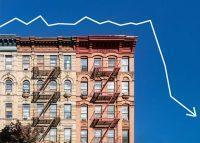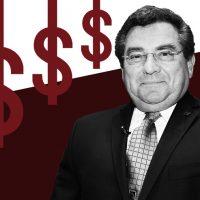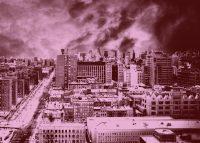The federal loan program meant to help small businesses weather the coronavirus’ economic impact leaves landlords out.
Owners of apartment buildings, mobile-home parks and even campgrounds are ineligible to participate in the Paycheck Protection Program, which is administered by the Small Business Administration. Such enterprises are in most cases deemed “passive businesses” by the agency, which determines eligibility for the loan program.
If a real estate firm can show that more than half of its revenue comes from expenses charged for “services,” rather than rent, it could be eligible for the $350 billion forgivable loan program, which launched Friday. But the Small Business Administration does not consider “mortgage payments, depreciation, etc.” as “expenses associated with providing services.” That means landlords are out of luck.
So are real estate developers, as the agency’s guidance states that “an ineligible passive business cannot obtain an SBA loan for any purpose, including the purchase or construction of a building for its own use.”
Read more



Absent federal assistance, landlords and real estate developers are at the mercy of their lenders. Many are frantically seeking arrangements to postpone payments, as those whose mortgages are secured by the quasi-governmental agencies Fannie Mae and Freddie Mac are allowed to do.
Those landlords are taking advantage of a program in the congressional $2.5 trillion stimulus package that lets them postpone mortgage payments for 180 days if in coronavirus-related financial distress.
Servicers of Freddie Mac mortgages got requests for such relief from 105 multifamily borrowers holding $810.2 million in mortgage loans, according to Fitch Ratings. The credit rating agency predicts such applications will grow significantly in the next week.
Landlords are concerned that they will be unable to pay their mortgages because of a steep drop-off in rents stemming from massive unemployment, rent strikes and moratoriums on evictions. According to a report released Monday by the Community Service Society of New York, 265,000 people may have difficulties paying their rent in New York. An untold number may withhold their rent to create leverage for their demands for rent and mortgage-payment forgiveness.
As a response to potential rent shortfalls — although some landlords have reported better-than-expected numbers — banks are generally negotiating with borrowers on a case-by-case basis. At least one top multifamily lender offered relief in the form of six months of only interest and escrow payments or deferral of principal and interest for six months, payable at maturity.
